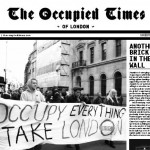 The 30th of November is a momentous day in the history of British Industrial Relations: Never before has Britain been faced with three million workers collectively going on strike on the same day. The General Strike of 1926 involved approximately one million workers and went on for nine days. Police officers didn’t go to work, teachers stayed at home, shops did not open, chauffeurs refused to drive their masters’ cars, printers refused to publish newspapers, workers in all industry put down their tools. Their cause was the continued cutting of miners’ wages that forced hundreds of thousands into poverty. British workers joined the strike in solidarity.
The 30th of November is a momentous day in the history of British Industrial Relations: Never before has Britain been faced with three million workers collectively going on strike on the same day. The General Strike of 1926 involved approximately one million workers and went on for nine days. Police officers didn’t go to work, teachers stayed at home, shops did not open, chauffeurs refused to drive their masters’ cars, printers refused to publish newspapers, workers in all industry put down their tools. Their cause was the continued cutting of miners’ wages that forced hundreds of thousands into poverty. British workers joined the strike in solidarity.
Solidarity strikes – the idea that a rail worker could go on strike in solidarity with a nurse – were made illegal by Thatcher in the 80s. Strikes can indeed be a real inconvenience and cause great disruption. After all, that is their purpose. But while politicians seem keenly aware of that issue, they remain largely blind to other disruptions: Those caused in the lives of millions by declining wages and benefits. The concentrated power of capital is growing, while the collective power of the 99% is weakened.
In 1926, as industry stopped, people still needed to be fed; energy was still required. Communities developed ways of looking after one another without relying on big industry or big government. Quickly, self-reliant networks were established that provided essential services whilst supporting the workers’ commitment to strike.
Winston Churchill, then a young politician, wanted to send the army and tanks to force people back to work. After negotiations, the Trade Union Congress and Conservatives proclaimed that the workers had “made their point” but that the national interest required a termination of the strike. No agreement had been reached that would have increased the minders’ pay. The activism of the workers had been neutered by bureaucratic compromise.
How does Occupy London fit into this? The three million workers who are threatening to strike are exercising their democratic rights. They are part of the 99%, and their calls for decent pensions fit under the umbrella of our protest against corporate greed and austerity cuts. The struggle against economic hardship anywhere is a contribution to the struggle for human freedom everywhere.
The logic of the free market is our equivalent to the oppressive rule of Mubarak’s regime. A logic that claims our income, delays our retirement age, triples our student fees, forces us out of our jobs, and takes away our homes.
Let us support this strike and all worker and student uprisings. We are the 99%.









